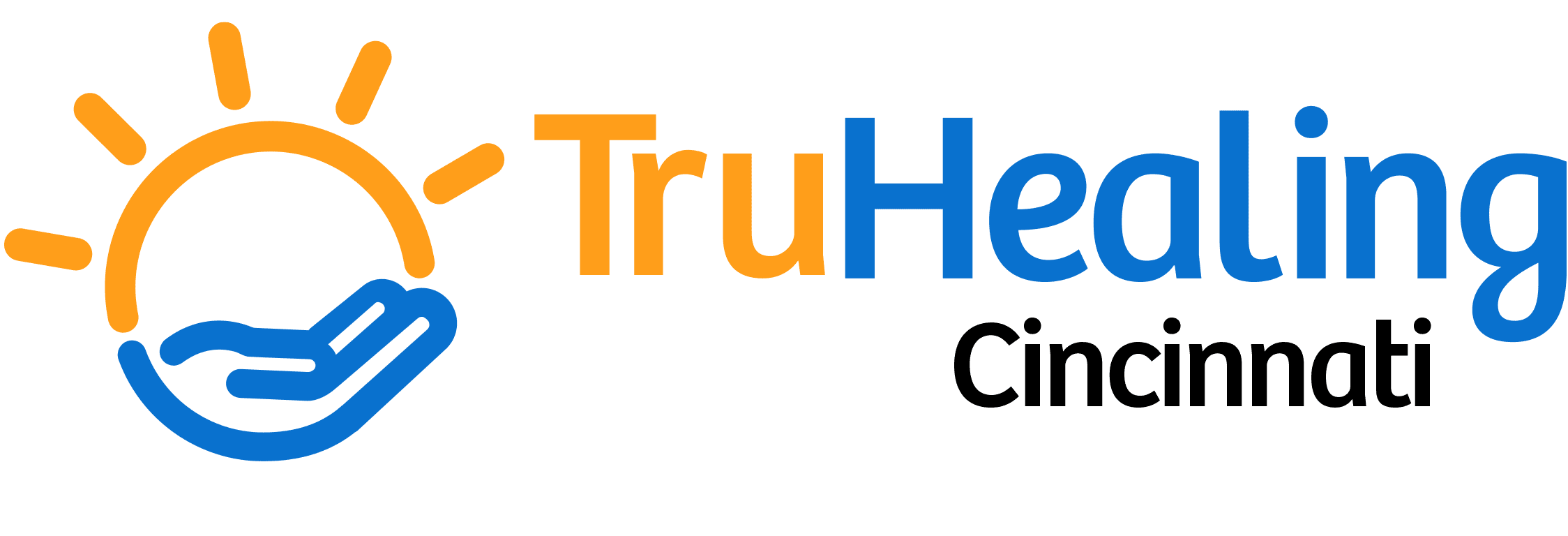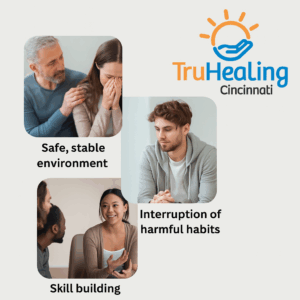Loving someone who’s struggling with addiction is a strange kind of grief.
They’re here—but not quite. They smile, laugh, say the right things. Then disappear into old patterns, false promises, quiet avoidance. You might recognize their face but not their eyes. And if you’ve landed on this blog, it’s probably because something in you still hopes they’ll come back.
That hope isn’t naïve. It’s brave. But it needs support.
If you’re wondering whether residential treatment could actually help your partner—if you’re weighing options between ultimatums and wait-it-outs—this blog is for you.
Let’s walk through what residential drug addiction treatment really is, how it works for alcohol, opioids, and other substances, and why it might offer more than just a timeout from chaos.
It Provides a Safe, Stable Environment—Right Away
Addiction thrives in chaos. In inconsistency. In the unpredictable environments where your partner might feel triggered, tempted, or completely overwhelmed. Residential treatment cuts through that.
The first thing it offers is containment. Not control, not punishment—just structure. For someone battling alcohol or opioid use, the early days of sobriety are fragile. Withdrawals are real. So are emotional crashes. Residential care creates a space where someone can land softly while their body and mind begin to detox and stabilize.
At TruHealing Cincinnati, this happens under medical supervision, with access to clinicians and counselors from the start. They’re not alone. And neither are you.
It Interrupts Harmful Habits and Emotional Patterns
Maybe you’ve watched the same loop over and over. They say they’ll stop. They try for a while. Then something happens—a fight, a stressor, even boredom—and the cycle starts again.
That loop doesn’t break without intervention.
Residential care offers more than a break from using—it offers a break from everything that keeps using alive. The people. The habits. The places. The emotional landmines. Inside the treatment setting, your loved one can finally see their patterns with fresh eyes, instead of being dragged by them.
That kind of distance isn’t weakness—it’s strategy.
It’s Not Just About Sobriety. It’s About Skill Building.
Stopping use is just the beginning. Staying sober in the real world requires skills your partner may never have been taught.
In residential treatment, they’ll start to build those:
- Emotional regulation
- Communication strategies
- Craving management
- Boundary setting
- Long-term relapse prevention
These tools matter whether they’re recovering from alcohol, opioids, or another substance. Without them, every sober attempt is built on willpower alone. With them, recovery becomes sustainable—not just hopeful.
It Includes Family Support (When You’re Ready)
You’re part of the picture, too.
Many programs offer family therapy, education, and communication planning—not to blame you or make you fix them, but to help you heal alongside them. Addiction strains every relationship it touches. Residential care gives you a chance to learn how to support without losing yourself.
And if you’re not ready to engage yet? That’s okay too. There’s no pressure. Your healing gets to be on its own timeline.
For those seeking drug addiction treatment in Lexington, Kentucky or Springfield, Ohio, TruHealing’s approach includes optional family integration—never forced, always supported.
It Offers a Full Reset—Mind, Body, and Nervous System
Most people don’t use substances just to “have fun.” They use to numb, to cope, to silence anxiety, to escape past trauma.
In treatment, your partner will have the space to begin looking at why they used—not just what they used. That includes:
- Trauma-informed therapy
- Mindfulness and nervous system regulation
- Group connection to reduce isolation
- Nutrition and physical recovery support
This is about more than detox. It’s about reconnection—to their body, to their self-worth, to you.
It Works for More Than “Hard Drugs”
There’s a dangerous myth that only people addicted to heroin or meth need residential care.
Not true.
Many people in residential treatment are there for alcohol use, prescription pills, benzodiazepines, or other seemingly “functional” dependencies. Just because someone is still working, parenting, or showing up doesn’t mean they’re okay.
If your partner’s relationship with substances is affecting your trust, your connection, or their ability to show up with honesty—then it’s valid. And treatable.
FAQ: What You Might Still Be Wondering
How long will they be gone?
Most residential programs last 30–45 days. Some continue longer depending on need. Aftercare is part of the plan from the beginning, so there’s a roadmap forward.
Will I get updates on their progress?
Yes—with their consent. Once they sign a release, you’ll likely receive calls from their case manager or therapist, and may be invited into family sessions.
What if they don’t want to go?
That’s common. Many people are resistant. But when they’re met with compassion, not coercion, and understand what’s possible, that resistance often softens.
Can they leave treatment early?
Legally, yes. But good programs work hard to build buy-in, not just compliance. The focus is on motivation, not manipulation.
Is alcohol addiction really “bad enough” for residential care?
Yes. Alcohol addiction is one of the most common reasons people seek residential treatment. It’s deeply impactful and absolutely treatable with care and dignity.
You Don’t Have to Carry This Alone
If you’ve spent years trying to hold your partner’s world together, maybe now it’s time for someone to hold you for a minute.
Residential treatment doesn’t fix everything. But it can begin something.
It can help your partner remember who they are. And it can give you space to hope again—not with blind optimism, but with grounded support.
Ready to Take the Next Step?
Call (888) 643-9118 or visit to learn more about our drug addiction treatment services in Cincinnati, Ohio. You don’t have to navigate this alone. We’re here for you—and for them—when you’re ready.


